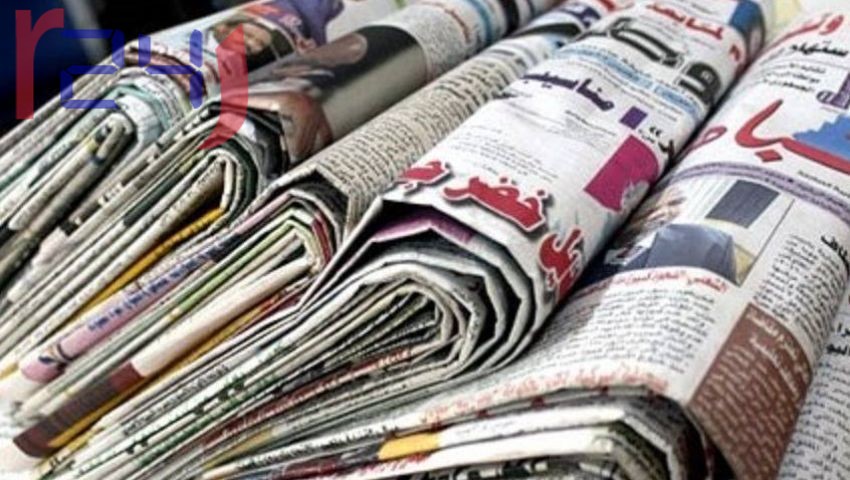Two Sudanese newspapers have announced that they have stopped publishing and laid off journalists.
However, the move indicates the imminent extinction of print media journalism industry in Sudan , due to the high cost, in a country exhausted by economic crises.
Lately, print media journalism continued to suffer losses, for political, security and economic reasons, and the harsh tribal security control over them during the past two decades of the defunct Salvation Government led by ousted Omar al-Bashir discounted many of them and made them move in limited areas, which was reflected in the decline of printing and distribution.
During the past five years, the Khartoum state authorities have deliberately removed hundreds of libraries and distribution boothsthat represent distribution outlets, claiming to beautify the streets of the capital.
On Wednesday, , the administration of the political daily Al-Majhar newspaper ended the service of its employees and suspended its publications. Al-Akhbar newspaper also took the same step to dismiss its journalists after it had been inactive for more than five.
Visions of newspaper editors and publishers, who spoke to Darfur 24, about the future of print media journalism in Sudan, varied, while most of them saw that its demise is only a matter of time, and that
the future will be for the electronic one, that will distinguish the professional journalist from the amateur, Some have argued that paper media will not disappear because they are an indirect part of the
state’s work.
Economic reasons
Al-Hindi, who is the owner of Al-Mujhar, considered suspending the issuance and laying off workers, a realistic decision based on economic calculations, stressing that he had not been subjected to any
political pressure from the transitional government.
Alhindi, indicated that the price of buying the dollar today is in the range of 200 pounds, which means that a ton of paper is equal to 190 thousand pounds, compared to 130 two months ago, and about 100
thousand pounds before the Corona epidemic.
Some argue that al-Hindi, to date, supports and defends the defunct Salvation Government, and does not acknowledge the existence of opposition. Some even attributed the reason for the suspension of its
issuance to the cessation of the support it was receiving from the “dissolved” National Congress Party regime.
In an exclusive statement to Darfur 24, Al-Hindi said that any newspaper issued after the emergence of the Corona virus loses between 20 and 50 thousand per day, and that all the newspapers currently issued, including the highest circulation ones, lose every dat, and there are newspapers with debts estimated at billions of pounds to paper merchants and printers.
For his part, the editor-in-chief of the Sudanese political newspaper, Al-Akhbar, Mustafa Abu Al-Azim, said that the country’s paper press is disappearing due to economic conditions, stressing that the absence of advertising on which newspapers rely on
Mustafa said, the future of global paper journalism, according to Abu Al-Azzim’s view, may be affected somewhat, but not as much as Sudan, saying: “Countries whose economy is stable, such as Saudi Arabia, is
unlikely to be affected by its press, because its advertising is continuous and its value is high in the Emirates, Britain and America, and there are newspapers distributed for free.”.
The future is settled
Abu Al-Azim wagered, in an interview with Darfur 24, that the future is in Sudan for electronic journalism, in light of the spread of smart phones, and the lack of reliance on publishing news according to known
standards.
Mustafa, who held the presidency of several political daily newspapers during the era of the former government, ruled out that the issuance of Al-Mujhar and “Al-Akhbar” was suspended recently, due to
the interruption of financial support that it was receiving from the defunct government, explaining that the economic deterioration raised inflation and the cost increased, so distribution decreased and losses
increased.
For his part, the editor-in-chief of the political daily Al-Mawakeb newspaper, Youssef Serageldin, said that the closure reveals that the paper-based press is going through difficult days, in light of a
severe economic crisis that appeared in the high costs of the press industry, besides the emergence of the Coronavirus pandemic.
Yousef warned that in the event that the print inputs are not exempted from custom duty, with fair distribution of the government advertisement, many newspapers will be taken out of the market, even
if their distribution percentage reaches “100%”, stressing that the advertisement is a criterion for survival.
Editor of the newly published newspaper of Al-Mawakeb expects that its pens’ newspapers will be closed in the event that the situation continues without direct interference in the issue of printing costs.
Serageldin warned, in a statement to Daufour 24, that the citizen is besieged by other essential commitments , which was reflected in the decline in the demand for buying a newspaper.
Serageldin disagreed with Abu Al-Azim, saying that print media was affected globally, citing the cessation of major newspapers such as Al-Hayat, confirming that there is a recession in the global press market, because there is a trend for electronic journalism.

